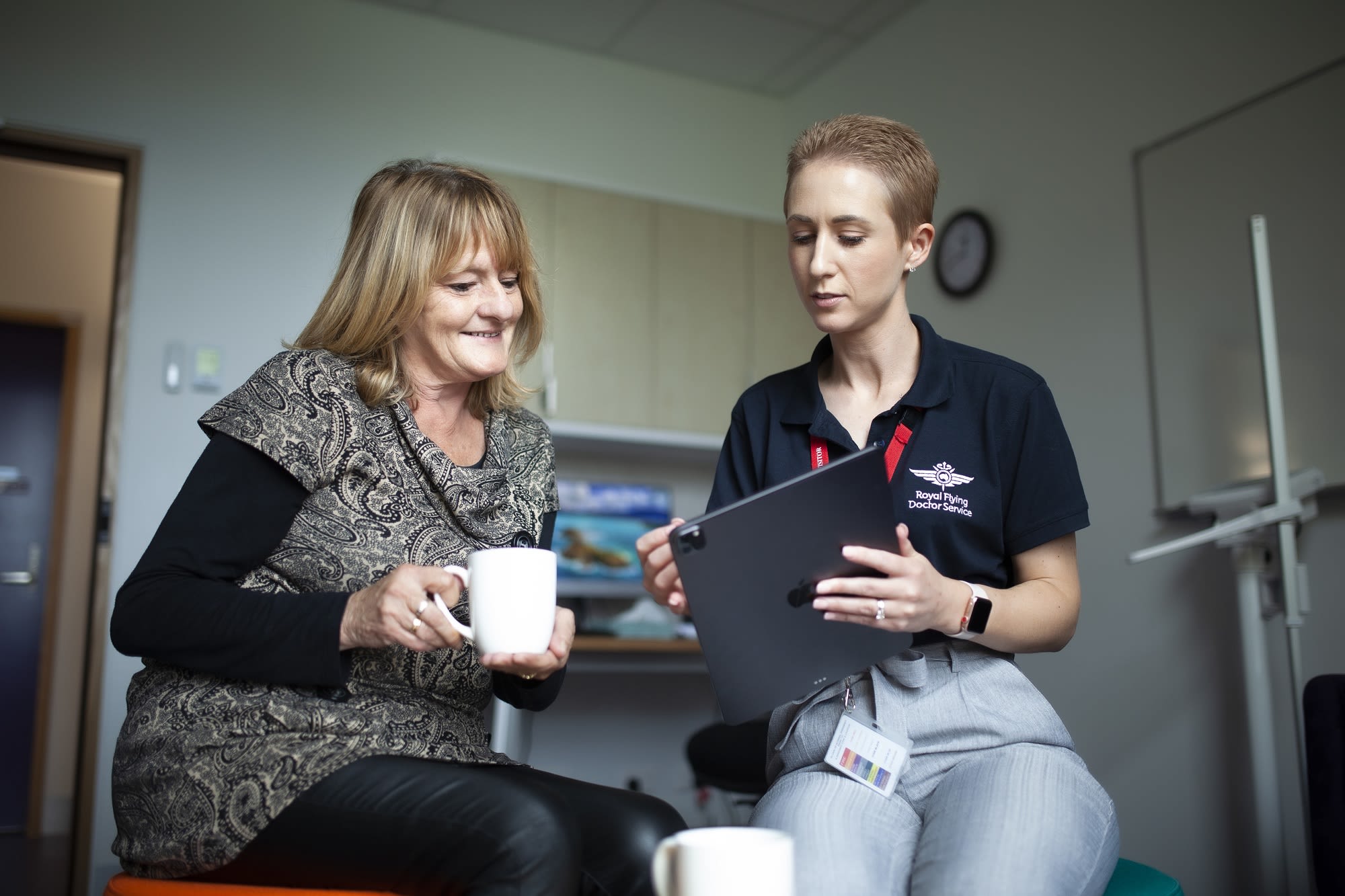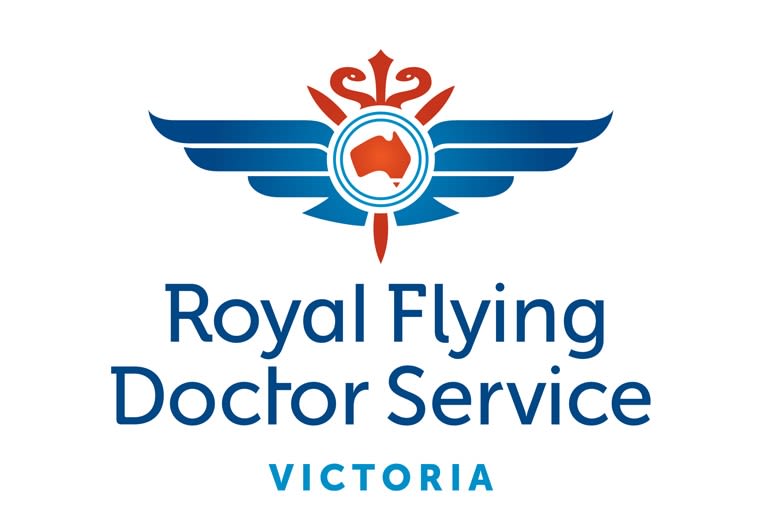Health care on call
Thanks to the Flying Doctor’s specialist telehealth service, Portland locals are able take back control of their own health and wellbeing.

Having spent time working in Canada’s very remote Northwest Territories, Dr Ashraf Sorial has long been acquainted with telehealth services.
“I used to use telehealth all the time, and for all types of specialists, because as you know, Canada is a very huge country, with lots of remote areas,” he says.
Following his time in Canada, Dr Ashraf moved to Australia, and has been working as a GP in Victoria’s coastal town of Portland since 2018.
On the surface, there aren’t a lot of obvious comparisons to draw between Canada’s Northwest Territories and a coastal town in Victoria's southwest. In fact, in many ways, they are polar opposites (almost literally). Population numbers, for one, differ quite significantly: today, only about 45,000 people live across the entire 1,143,794 square kilometres of the Northwest Territories, whereas the population of Victoria – even after discounting those who live in Melbourne – is about 1.8 million, with some 10,000 of these people calling Portland home.
However, one thing these places do have in common is a level of isolation that has resulted in a serious lack of access to health care services.
Portland is located within Gunditjmara Country on the Great South Coast of Victoria, more than 350km south-west of Melbourne, and more than 530km south-east of Adelaide. Despite its rich, ancient history, and its current popularity as a tourist destination in summer, Portland lacks access to a number of critical and specialist health care services. There are no local specialists for people suffering from many chronic conditions, and the town’s maternity services were suspended in March of this year due to a midwife shortage.
Because of Portland’s geographical isolation, Dr Ashraf again relies heavily on telehealth services for his patients, and since 2019 has become very familiar with the Flying Doctor Telehealth specialist service.

“I’ve used most of your specialists,” Dr Ashraf says with a laugh, noting that over the years, he has enlisted the advice and recommendations of Flying Doctor Telehealth specialists in the fields of cardiology, paediatrics, psychology, respiratory medicine and more.
The reason for this need is because, like in many rural towns across Victoria and the rest of Australia, there are few, if any, local specialist health care providers based in Portland.
“The local paediatrician here has a waiting list of two years,” says Dr Ashraf. “Every time I send a referral, they tell me they cannot see that child because they don't have the time. Now, they can't see any new children with behavioral problems.”
For most services though, local options simply don’t exist, and the only way they can get the health care they desperately need is to travel hundreds of kilometres to see a specialist in a bigger city.
“For example, there is no cardiologist in this area,” says Dr Ashraf. “We have physicians who look after people with heart problems and cardiovascular diseases, but to see a cardiologist per se you really need to travel to Geelong.”
However, as Dr Ashraf explains, many of his clients are simply unable to travel these distances, meaning that many Portland locals are forced to deprioritise their health and wellbeing.
Portland is located on Victoria's southwest coast, 100km from the end of the Great Ocean Road.
The small coastal town is located far from the nearest big city centres and major hospitals. It lies 350km from Melbourne,
530km from Adelaide,
and 280km from Geelong.
“My clients have said to me that to go see a specialist for five minutes, they need to spend three or four hours travelling back and forth, and that’s just too expensive,” says Dr Ashraf. “Some can’t actually travel [on their own], and they need somebody to take them to the appointment.”
This is the harsh reality he is all too aware of as a GP working in a small town.
“Here, you don’t have the support you have in, for example, Geelong or Melbourne, because in those cities, you can just send a patient to the big centres [to see a specialist], and while they might need to wait for a few hours, they know there is a specialist there,” explains Dr Ashraf. “But here, some people are not able to access these valuable services because they are too frail to travel, or they have no one to take them, or they cannot afford the travel.
“There are a lot of big hurdles in the way.”
However, because of Flying Doctor Telehealth, many of Dr Ashraf’s clients – particularly those with chronic diseases – are now able to access the help they desperately need from the comfort of their own town. This has empowered so many people to take back control of their own health.
“Many of my clients like that they don't need to travel to see a specialist anymore; they can just talk to them remotely and save time and money,” says Dr Ashraf.
“For example, for people with mental health issues or with depression or anxiety, or elderly people with impacted mental states, being able to see a psychiatrist [via telehealth] is really very helpful, because there is no bulk billing psychiatrist around at all. And most of my clients, they cannot afford a private billing psychiatrist or to travel back and forth to see a psychiatrist, so getting more services available via telehealth will be very helpful for older communities.”
Dr Ashraf also notes that having a paediatrician now available via telehealth has been a huge relief for many families. “Having this service and being able to discuss the issues with the paediatrician and get advice about management and medication is very helpful for the patients, and for me too.”
Overall, Dr Ashraf feels Flying Doctor Telehealth is a powerful tool for ensuring geographical distance is no barrier to exceptional health care.
“The way my clients can just have a consultation here in my office is really good.”
To find out more about the Flying Doctor Telehealth service, head to our website.

